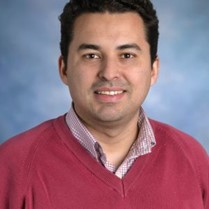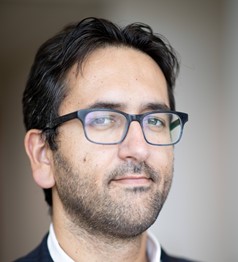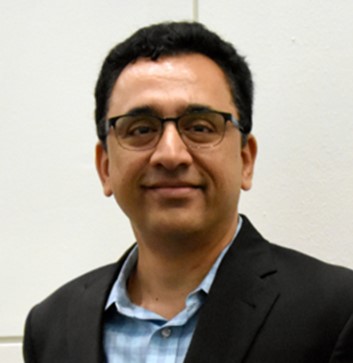IEEE Services 2020 Plenary Events
Smart Data and Digital Health Services Beyond COVID-19
| Title: | Smart Data and Digital Health Services Beyond COVID-19 |
| Date/Time: | Wednesday October 21, 14:40-16:00 UTC |
| Summary: | Surpassing other epidemics and pandemics in recent memory, the COVID-19 pandemic is having an immense impact on population safety and a devastating effect on world economies and the livelihood of individuals and societies. The global-scale response to the pandemic triggered drastic measures including economic shutdowns, travel bans, stay-home orders, and even complete lockdowns of entire cities, regions, and countries. Obviously, any plan for stopping a pandemic of this scale must be based on a quantitative understanding of the proportion of the at-risk population that needs to be protected by effective control measures in order for transmission to decline sufficiently and quickly enough for the epidemic to end. However, scientific studies such as real-time and continuous analysis and decision making (including estimating transmissibility of the disease, forecasting the spatio-temporal spread at different spatial scales, assessing the effect of various controls, predicting the effect of school closures and reopening, assessing the impact of pharmaceutical interventions) through models and simulations require data driven services. Going beyond managing COVID-19 epidemic itself, equally urgent innovations are also needed in data driven services to effectively respond to a wide spectrum of societal and economical challenges caused by this pandemic. Organized by the IEEE Conference on Smart Data Services (SMDS) and the IEEE Digital Health as a Service Symposium, this panel brings together academic, governmental and industrial experts in data science, computational epidemiology, security and privacy, and healthcare technologies to focus on the radical shifts needed in smart data and digital health services to respond to challenges posed by COVID-19 in the contexts of epidemiology (e.g., modeling, testing, vaccine development), health and human services (e.g., mixed home-work living, tele-health, uberization of health and social care services, and COVID-proof delivery of health and aging services), and families, communities and societies (e.g., remote education and online schooling, tele-work, privacy, governance, community resiliency). After an introductory opening, each panelist will address one of the above mentioned responses to COVID-19 as well as future epidemics and pandemics through data science or other data-centric sciences and digital services. |
| Panel Chair: |  K. Selçuk Candan, Arizona State University K. Selçuk Candan, Arizona State UniversityK. Selçuk Candan is a Professor of Computer Science and Engineering at the Arizona State University (ASU) and the Director of ASU’s Center for Assured and Scalable Data Engineering (CASCADE). His primary research interest is in the area of management and analysis of non-traditional, heterogeneous, and imprecise (such as multimedia and scientific -- including epidemic) data. He has published over 230 journal and peer-reviewed conference articles, one book, and 16 book chapters. He has 9 patents. Prof. Candan served as an associate editor of for the Very Large Databases (VLDB) journal and IEEE Transactions on Multimedia. He is currently in the editorial boards of the ACM Transactions on Database Systems, IEEE Transactions on Knowledge and Data Engineering, and IEEE Transactions on Cloud Computing. He has served as general or program chair for many premier ACM and IEEE conferences, including ACM SIGMOD, ACM MM, ACM ICMR, IEEE IC2E, and most recently IEEE SMDS. He has successfully served as the PI or co-PI of numerous grants, including from the National Science Foundation, DOD, and DOE. His funded research on epidemics includes "epiDMS: Data Management and Analytics for Decision-Making From Epidemic Spread Simulation Ensembles," "Understanding the Evolution Patterns of the Ebola Outbreak in West-Africa and Supporting Real-Time Decision Making and Hypothesis Testing Through Large Scale Simulations,” and "RTEM: Rapid Testing as Multi-fidelity Data Collection for Epidemic Modeling", the last of which is focusing on co-modelling of COVID-19 epidemic and testing strategies. He is a member of the Executive Committee of ACM SIGMOD and an ACM Distinguished Scientist. You can find more information about his research and an up-to-date resume at http://aria.asu.edu/candan. |
| Panelist: |  Gerardo Chowell, Georgia State University Gerardo Chowell, Georgia State University Dr. Gerardo Chowell is Professor of Epidemiology and Biostatistics in the School of Public Health at Georgia State University in Atlanta. He is also a Senior Research Fellow in the Division of International Epidemiology and Population Studies at the Fogarty International Center, NIH. Dr. Chowell has over 16 years of experience in studying infectious disease transmission dynamics and control by integrating diverse data sources with mathematical, statistical, and epidemiological methods. His interdisciplinary research approach includes the development, evaluation, and application of rigorous quantitative tools for investigating transmission mechanisms and generating evidence-based forecasts of the trajectory of evolving epidemics. He collaborates with scientists and public health officials around the world. For instance, during the 2009 A/H1N1 influenza pandemic, he collaborated with researchers and public health officials in Mexico to advice the Office of the President on the transmissibility, severity and control interventions associated with this pandemic. This work helped inform early public health policy. In the context of the ongoing COVID-19 pandemic, our work has shed light on key transmission and epidemiological features of the novel coronarivus. In particular, our work provided early evidence on the significant role of asymptomatic individuals in the transmission dynamics of SARS-CoV-2. |
| Panelist: |  Ernesto Damiani, Università degli Studi di Milano Ernesto Damiani, Università degli Studi di MilanoErnesto Damiani is Full Professor at Università degli Studi di Milano, Senior Director of Artificial Intelligence and Intelligent Systems Institute, Khalifa University, leader of the Big Data area at Etisalat British Telecom Innovation Center, and President of the Consortium of Italian Computer Science Universities (CINI). He is also part of the COVID-19 Research Task Force established in Khalifa University (UAE). According to DBLP (August 2020), Ernesto Damiani has authored 131 journal papers, 324 refereed articles in proceedings of international conferences, and published 56 books and chapters as an author or editor. According to Google Scholar, Ernesto’s work has been cited more than 17,000 times and his h-index is 55; 278 of his papers have at least 10 citations. On Scopus he has 591 documents and more than 6,700 total citations by 5,300 documents. His Scopus h-index is 35. With 521 publications listed on DBLP, he is considered among the most prolific European computer scientists. His areas of interest include Artificial Intelligence, Machine Learning, Big Data Analytics, Edge/Cloud security and performance, and cyber-physical systems. He has been the Principal Investigator of the H2020 TOREADOR project on Big-Data-as-a-Service funded by the EU Commission on the ICT call on Big Data Research. Ernesto has been a recipient of the Stephen Yau Award from the Service Society, of the Outstanding contributions Award from IFIP TC2, of the Chester-Sall Award from IEEE IES, and of a doctorate honoris causa from INSA – Lyon (France) for his contribution to Big Data teaching and research. |
| Panelist: |  Murat Kantarcioglu, University of Texas at Dallas Murat Kantarcioglu, University of Texas at Dallas Dr. Murat Kantarcioglu is a Professor in the Computer Science Department and Director of the Data Security and Privacy Lab at The University of Texas at Dallas (UTD). He received a PhD in Computer Science from Purdue University in 2005 where he received the Purdue CERIAS Diamond Award for Academic excellence. He is also a visiting scholar at Harvard Data Privacy Lab. Dr. Kantarcioglu's research focuses on the integration of cyber security, machine learning, data science and blockchains for creating technologies that can efficiently and securely store, analyze and share data and machine learning results. He is a recipient of an NSF grant to investigate technologies to safeguard patient data during COVID-19 research. His research has been supported by grants including from NSF, AFOSR, ARO, ONR, NSA, and NIH. He has published over 170 peer reviewed papers in top tier venues such as ACM KDD, SIGMOD, ICDM, ICDE, PVLDB, NDSS, USENIX Security and several IEEE/ACM Transactions as well as served as program co-chair for conferences such as IEEE ICDE, ACM SACMAT, IEEE Cloud, ACM CODASPY. Some of his research work has been covered by the media outlets such as the Boston Globe, ABC News, PBS/KERA, DFW Television, and has received multiple best paper awards. He is the recipient of various awards including NSF CAREER award, the AMIA (American Medical Informatics Association) 2014 Homer R Warner Award and the IEEE ISI (Intelligence and Security Informatics) 2017 Technical Achievement Award presented jointly by IEEE SMC and IEEE ITS societies for his research in data security and privacy. He is also a Distinguished Scientist of ACM. |
| Panelist: |  Balakirshnan Prabhakaran, National Science Foundation (NSF) Balakirshnan Prabhakaran, National Science Foundation (NSF)Prabha (Balakrishnan) Prabhakaran is currently a Program Director in the Human Centered Computing (HCC) program of Information and Intelligent Systems (IIS) Division of the CISE (Computer and Information Science and Engineering) Directorate of the National Science Foundation (NSF). He is also involved with Secure and Trustworthy Computing as well as other programs such as Fairness in Artificial Intelligence, Future of Work. Prabhakaran is a Professor in the faculty of Computer Science Department, University of Texas at Dallas. Dr. Prabhakaran received the prestigious NSF CAREER Award FY 2003 for his proposal on Animation Databases. He was selected as an ACM Distinguished Scientist in 2011 and is currently an IEEE Senior Member. He is an Associate Editor of IEEE Transactions on Multimedia. He is Member of the Editorial board of Multimedia Systems Journal (Springer), Multimedia Tools and Applications journal (Springer), and other multimedia systems journals. He received the Best Associate Editor for 2015, from Springer’s Multimedia Systems Journal. Dr Prabhakaran is a Member of the Executive Council of the ACM Special Interest Group on Multimedia (SIGMM) and is the Co-Chair of IEEE Technical Committee on Multimedia Computing (TCMC) Special Interest Group on Video Analytics (SIGVA). Dr. Prabhakaran served the General Co-Chair of the IEEE International Conference on Health Informatics (ICHI) 2015. He was also a General Co-Chair of ACM International Conference on Multimedia Retrieval 2013 (ICMR 2013), IEEE Haptic, Audio, and Visual Environments (HAVE) 2014, a General Co-chair of ACM Multimedia 2011, and ACM Multimedia and Security (MM&Sec) 2007. Prof Prabhakaran's research has been funded by Federal Agencies such as the National Science Foundation (NSF), USA Army Research Office (ARO), and the US-IGNITE Program, apart from industries and consortiums. |
| Panelist: |  Ajay Royyuru, IBM Research Ajay Royyuru, IBM Research Ajay Royyuru leads Healthcare & Life Sciences research at IBM. His team is actively pursuing high quality science, developing novel technologies and achieving translational insights across this industry, including areas of cancer, cardiac, neurological, mental health, immune system, and infectious diseases. He co-leads the accelerated science effort in IBM's response to COVID-19. After his undergraduate and masters education in human biology and biophysics from All India Institute of Medical Sciences, New Delhi, Ajay obtained his Ph. D. in molecular biology from Tata Institute of Fundamental Research, Mumbai. He had postdoctoral training at Memorial Sloan-Kettering Cancer Center, New York and a brief stint at scientific software development before joining IBM Research. In 2016 Ajay was named an IBM Fellow, the company's pre-eminent technical distinction. Ajay is a member of International Society for Computational Biology, IBM Academy of Technology and IBM Industry Academy. |